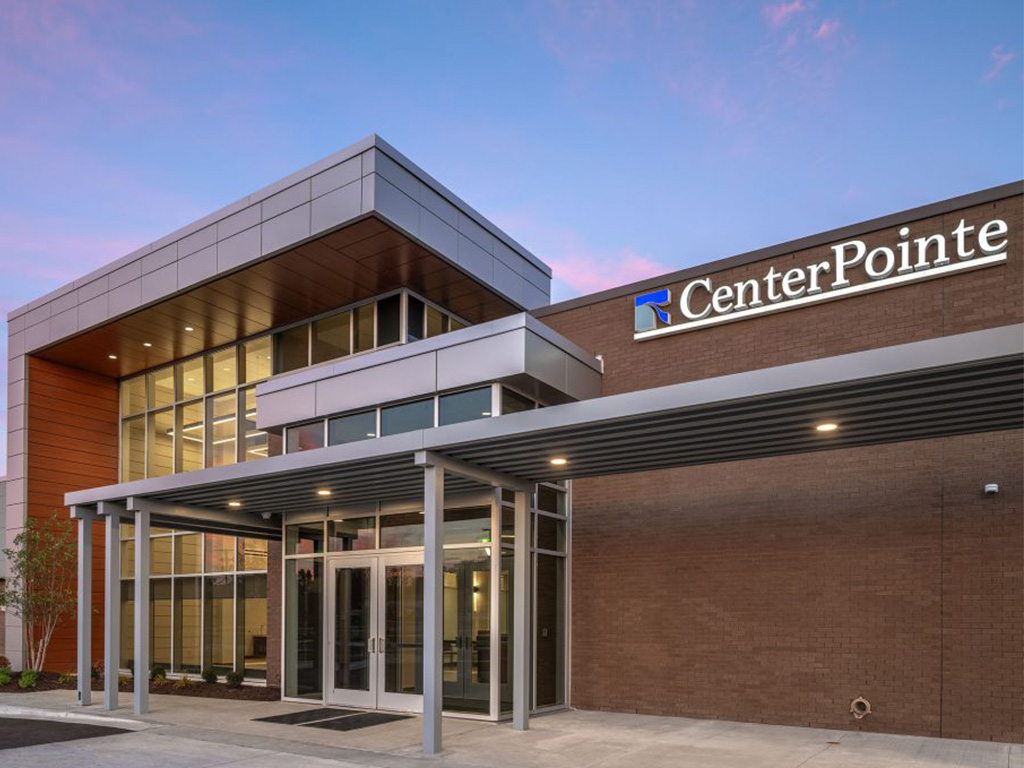For many people, the pain of withdrawal can seem like an insurmountable obstacle on the path to addiction recovery. But when a person enters the detoxification program at CenterPointe Hospital of Columbia, they can overcome this obstacle and take an important step toward a much healthier future.
Learn About Detox
Detoxification, or detox, is a short-term program that is designed to help people withdraw from alcohol and other drugs safely and with as little discomfort as possible.
When a person who has developed an addiction tries to end their substance abuse, their body may react with a variety of painful physical and psychological withdrawal symptoms.
If a person tries to get through withdrawal on their own, the intensity of these symptoms can quickly push them back into substance abuse. In certain circumstances, such as if the person has a long history of heavy alcohol abuse, trying to get through withdrawal without professional help can be life-threatening.
CenterPointe Hospital of Columbia offers on-site medical detox. This means that detox patients at our hospital may receive prescription medications and other forms of medical care in addition to therapeutic services to help them manage the symptoms they develop.
Our Detox Admissions Criteria
The detox program at CenterPointe Hospital of Columbia serves adults and senior adults. We make all admissions decisions on an individual basis, but in general, our program is for people who meet the following criteria:
- Adults age 18 and older of all genders
- Have developed an addiction to benzodiazepines, opioids, or alcohol
- May also have a co-occurring mental health disorder
To determine if our detox program is the right place for you, please contact us at your convenience.
The Importance of Detox
Let’s not sugarcoat this. Going through withdrawal without professional help can be excruciating. Depending on which type of substance use disorder you have developed, withdrawal can involve the following physical symptoms:
- Excessive sweating
- Fever and chills
- Watery eyes and runny nose
- Headache
- Severe cramps
- Nausea
- Vomiting and diarrhea
- Aches and pains throughout your body
- Exhaustion
- Insomnia
- Loss of appetite
- Muscle stiffness
- Tics and tremors
- Seizure
The physical distress of withdrawal may also be accompanied by psychological symptoms such as these:
- Powerful drug cravings
- Anxiety
- Agitation and irritability
- Depression
- Confusion and disorientation
- Dissociation (feeling detached from your environment or yourself)
- Auditory, visual, and tactile hallucinations
- Delusions
- Paranoia
- Psychosis
- Suicidal ideation
When you enter our detox program, the professionals who provide your care can keep you safe and as comfortable as possible. They may be able to help you avoid some of the symptoms listed above and empower you to manage other aspects of withdrawal. This significantly increases the likelihood that you will complete the process, after which you can transition directly to the next phase of your care.
Your Experience During Detox
At CenterPointe Hospital of Columbia, we are committed to providing personalized care for all patients. This includes the adults who begin their time with us in our detox program.
After we have assessed the full scope of your needs, your experience in detox may include the following elements:
- Medical support: Throughout your time in our detox program, you will meet regularly with either a medical doctor or a nurse practitioner. These professionals can monitor your physical and mental health and address any medical concerns that may arise.
- Medication-assisted treatment (MAT): If your team thinks that you can benefit from medication to ease the symptoms of opioid withdrawal, they may prescribe Suboxone or Vivitrol.
- Therapy: In addition to receiving medical services, you can participate in therapy while you are in detox. The therapeutic component of your detox program can help you manage the symptoms you develop and prepare you to fully engage in the next phase of your care.
Most people complete detox in seven to 10 days, but this is by no means a rigid deadline. As with the services you receive, the amount of time you remain in this program will also be determined solely by what’s best for you.
Your Next Steps After Detox
Detox can be an essential first step on the path to recovery. But it is just one step. Once you have completed detox, it is extremely important that you continue to receive appropriate care.
During the post-detox phase of your care, you can address the concerns that may have contributed to your substance use or that could threaten your continued recovery. You can also get help for any co-occurring mental health concerns you have developed.
Your needs, goals, and preferences will help us determine what type of care is best for you after detox. At CenterPointe Hospital of Columbia, your next steps may include one or more of the following:
- Inpatient care: At the inpatient level, you will continue to live at our center. Your post-detox care will feature full days of personalized services, multiple forms of therapy, and nutritious meals. Typical length of stay in inpatient care is seven to 14 days.
- Intensive outpatient program (IOP): Our IOP is in session three days per week. Each day includes three hours of care. This program can be an excellent source of step-down support after you have completed inpatient care. Most people remain in our IOP for four to six weeks.
- Traditional outpatient services: At the traditional outpatient level, you can schedule individual sessions with a psychiatrist or nurse practitioner at the frequency that’s best for you. These sessions can be valuable sources of ongoing support.
The Benefits of Detox
If you are an adult who needs professional help to rid your body of addictive substances, here are a few of the many potential benefits of choosing the detox program at CenterPointe Hospital of Columbia:
- Safety: When you enter detox, you will be in a safe place under the supervision of experienced professionals who truly care about you. If the symptoms you experience threaten your well-being, your team will take the necessary actions to protect your health.
- Comfort: Detox is not a pain-free experience. But the professionals who care for you in our detox program may offer both medical and therapeutic support to alleviate your discomfort and help you complete the process with minimal distress.
- Peace of mind: When you begin to experience withdrawal symptoms, it’s common to be nervous or even afraid. At our hospital, you know that you will be under the care of experienced professionals who are prepared to address any contingencies that may occur. This knowledge can ease your concerns and help put your mind at ease.
- Continuity of care: At CenterPointe Hospital of Columbia, you can transition directly from detox to our inpatient program or our IOP. This can reduce your risk for immediate relapse, promote continuity of care, and help you gain an even stronger foothold in recovery.
- Success: Addiction can take a tremendous toll on your self-esteem. Completing detox can demonstrate that you are capable of more than you may have realized. Knowing that you can overcome formidable challenges can be a source of confidence and motivation as you progress in your recovery.
This content was written on behalf of and reviewed by the clinical staff at CenterPointe Hospital of Columbia.














